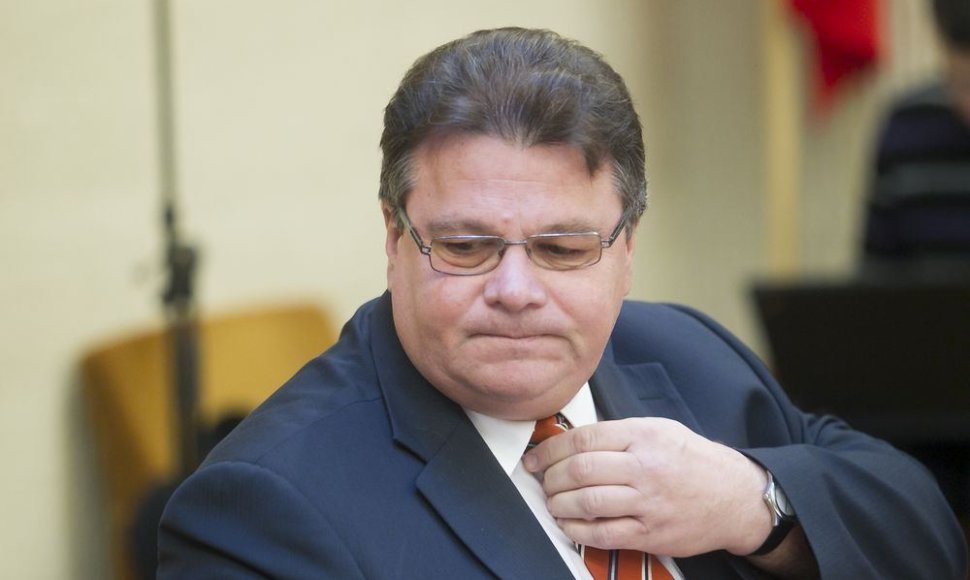The Lithuanian diplomacy chief spoke after a meeting with EU High Representative for Foreign Affairs and Security Policy Catherine Ashton, European Commissioner Stefan Fule in the framework of the United Nations (UN) General Assembly in New York.
"We touched upon the topic. In our conversation, we again emphasized that at least Europe does not seek any confrontation with Russia or the structures involving Russia. Furthermore, we do not see any major technical for both types of relations," Linkevičius told BNS when asked whether the meeting addressed the Russian pressure upon Eastern Partnership countries.
"The issue was raised – it is not possible to sign both agreements at the same time, i.e., free trade agreements with the EU and the Customs Union – they involve different tariff requirements, different systems of services. However, one does not render the other impossible," the minister said.
In his words, "the artificial contradictions made in public are indeed politicized."
"We do not contribute to the politicizing and underlined once again that we do not see the confrontation in practice. Our partners also do not seek confrontation with other countries. They simply chose the path of European integration, they want to take the path and heard our support today," Linkevičius, the foreign minister of the Lithuanian presidency of the EU Council, told BNS.
During the Eastern Partnership summit in Vilnius in November, the EU expects to sign the Association and Free Trade Agreement with Ukraine and initial similar agreements with Georgia and Moldova.
Ukraine, Moldova and Armenia have reported Russian pressure over the past several months.
The Eastern Partnership program involves Armenia, Azerbaijan, Belarus, Georgia, Moldova and Ukraine and is one of the priorities of the Lithuanian EU Council presidency.












